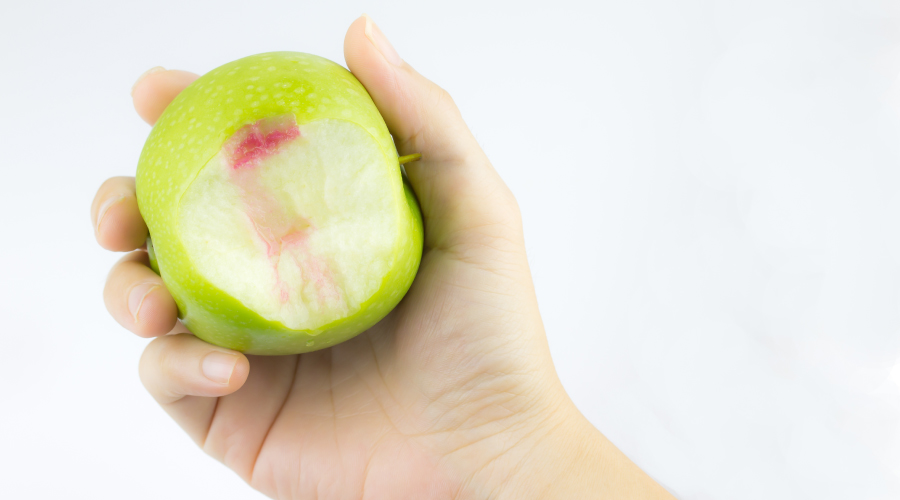

Imagine you are brushing your teeth and suddenly notice blood on your truthbrush; strange right? This often happens due to tooth decay or buildup of plaque at the gum lines. This may lead to a severe condition called gingivitis or inflamed gums. Moreover, gum swelling and bleeding is a sign of gingivitis. It is not a disease, but an underlying issue that causes pain and indicates poor oral health. With correct oral care, bleeding, and swollen gums can be treated. However, there are some more reasons why bleeding gums occur and it is well advised to consult a health care professional if it is severe.
What are the Causes of Bleeding Gums?
Bleeding gums are the result of gum inflammation, which might occur due to infrequent or inadequate brushing of your teeth. Here are some common reasons for bleeding gums to occur:
-
Poor Oral Hygiene
One of the main bleeding gums causes: poor oral health. In the mouth, millions of bacteria lurk and some of them cannot be good for our oral cavity. Such harmful bacteria causes inflammation and when not brushed properly it causes plaque in teeth. These plaques need to be removed with regular brushing at least twice a day, or eventually create a rough surface and tooth decay starts. This triggers inflammation and blood starts coming from the affected area.
-
Gingivitis
This is another common bleeding gums causes, which is technically an inflammation in gums. Gingivitis is usually not painful unless it is acute. If acute gingivitis is not treated well, gum bleeding continues causing toothache and bad breath.
-
Periodontitis
When chronic gingivitis is left untreated, the inflammation expands and causes Periodontitis. In addition to bleeding gums, it also causes tooth decay, leading to the formation of gum pockets and exposed necks. In severe cases, jaw bones feel a lot of pain and it might also recede, causing teeth to lose their firm support in periodontium sacs. This mostly leads to tooth loss in individuals who are aged 40 and over.
-
Some other causes
Some of the other causes of swollen bleeding gums can be:
- Brushing too hard
- Injury while brushing hard
- Ill-fitting dentures or braces.
- Improper flossing
- Infection in gum
- Vitamin C or vitamin K deficiency
- Leukemia
- Diabetes
- Hormonal changes during menopause, puberty, or pregnancy.
- Oral herpes
- Hemophilia
- Anticoagulant medications
What is the Treatment for Bleeding Gums?
Bleeding gums treatment depends on various causes like poor oral health, gingivitis, and others. If bleeding of the gums becomes painful and remains for a long time, it is good to contact a medical professional for treatment. Some of the common bleeding gums treatment include:
- Tooth Scaling – It is a dental procedure that removes plaque and tartar from teeth and gums. It prevents tooth loss and helps in soothing tooth root pain.
- Root Planing (deep dental cleaning) – It is a deep cleaning procedure to remove gum diseases and soothe the roots.
- Osseous Surgery – Reduces the size of pockets around your tooth.
- Laser Periodontal Surgery – It is a dental procedure that uses lasers to treat gum diseases. It is a minimally invasive alternative to traditional gum theory.
- Gum Grafts and Flap Surgery – Involves making incisions along the gum line, lifting the gums away from the teeth, and then stitching them back into place.
- Professional Cleaning – This procedure involves the removal of plaque and tartar deposits from the tooth surface. It is usually done every six months.
How to Prevent Swollen Bleeding Gums?
If you get bleeding gums when brushing, it is time you should improve your oral hygiene. It can be treated at home easily in the early stages. If the bleeding continues for more than two weeks, schedule an appointment with a dentist.
Meanwhile, here are some how to prevent bleeding gums tips that you can try at home:
- Brush at least twice a day, especially after a meal.
- Floss once daily.
- Use a soft-bristled toothbrush.
- Rinse your mouth with warm saltwater once a day.
- Avoid smoking.
- Use an antibacterial mouthwash.
- Do not use tobacco
- Avoid aspirin unless recommended by the dentist.
- Use an oral irrigation device on the low setting to soothe and massage your gums.
- See your dentist if your braces or dentures do not fit well.
Conclusion
Bleeding gums are often a sign of gum disease. There are various bleeding gums causes, some of them are dental injury, mouth ulcers, infections, poor hygiene, and gingivitis. To avoid having bleeding gum, brush your teeth twice a day and take several other precautions given above to prevent it. Furthermore, you should ensure that you use proper dental products for brushing and mouthwash. Avoid using certain products that irritate and worsen the bleeding gum condition. For better-suited products, contact your dentist and ask them to recommend good products. This way, you can keep your teeth and gums clean and soothing.




